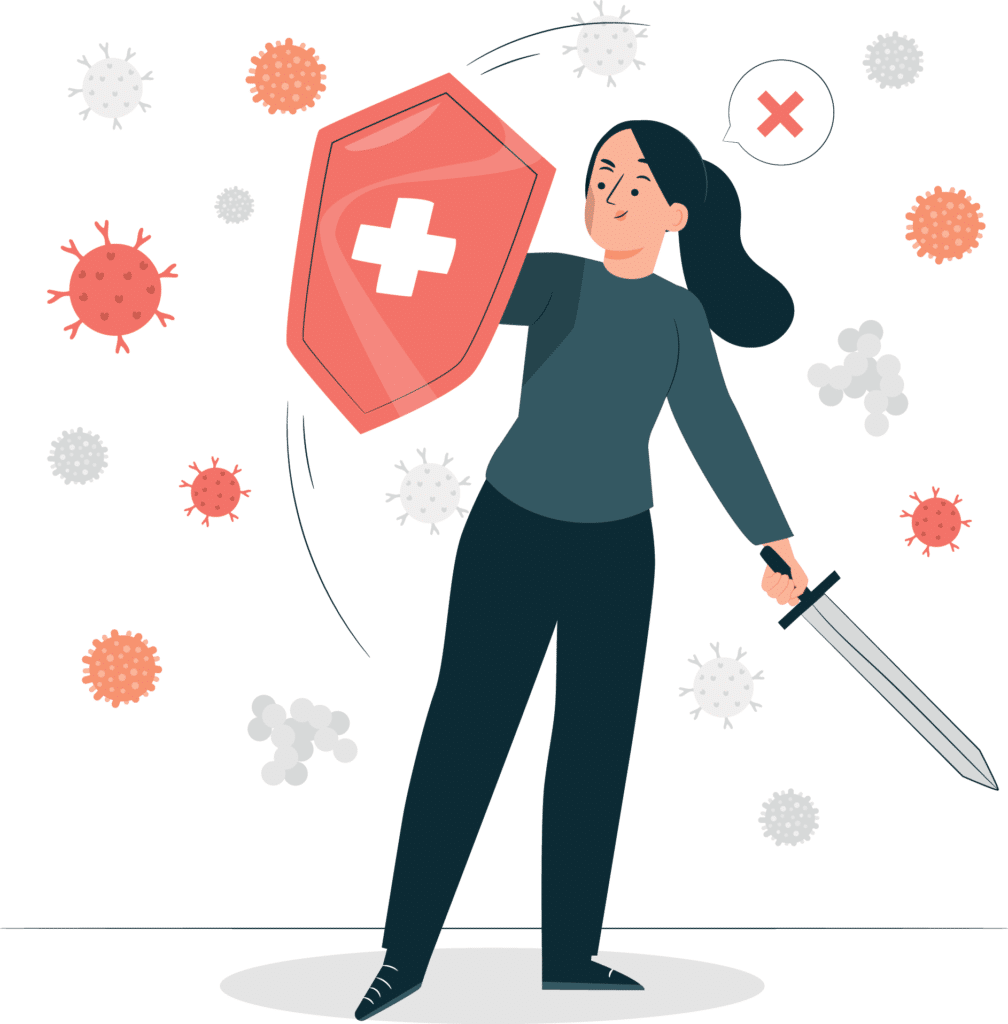
NK Cell Immunity Test – “The Killer Cells”
(NK Cell Count & NK Cell Activity)
The human body is equipped with a complex immune system that defends against pathogens and foreign substances. This system includes both innate immunity (our body’s immediate, natural defense) and adaptive immunity (developed over time through exposure).
Natural Killer (NK) Cells are a vital part of the innate immune system. Produced in the bone marrow, these specialized white blood cells act swiftly to eliminate invading organisms or abnormal cells. NK Cells are often called “killer cells” because of their powerful ability to destroy virus-infected cells and even early-stage cancer cells. Research shows they are up to 100 times more efficient than other white blood cell types.

How NK Cells Work: Four Key Immune Functions
1. Triggering inflammatory responses
2. Releasing inflammatory mediators to break down foreign invaders
3. Initiating programmed cell death (apoptosis) in harmful cells
4. Directly eliminating foreign cells via Antibody-Dependent Cellular Cytotoxicity (ADCC)
What affects NK Cell Function?
- Age: As we age, the immune system decreases. After the age of 40, the immune function drops to about 50%, and by the age of 70, it may reduce to only 10%, including a decrease in NK Cells.
- Lifestyle Habits: Insufficient sleep or poor-quality sleep, along with chronic stress, can lower the immune system’s efficiency.
- Unhealthy Diet, Smoking, and Excessive Alcohol Consumption: These factors can contribute to a decrease in immune system function.
- Regular Physical Exercise: Regular exercise improves blood circulation, stimulates metabolism, promotes muscle growth, benefits heart health, and strengthens the immune system, which in turn increases NK Cell levels.
- Frequent Infections and Illness: Individuals who frequently suffer from infections or illnesses will see a decrease in NK Cells.
What Happens if NK Cells Are Low?
Typically, NK Cells comprise 10–15% of the body’s lymphocytes. When immunity declines—whether due to aging, illness, or unhealthy habits—the NK Cell count drops. This weakens the body’s frontline defense, increasing susceptibility to infections such as cold sores, shingles, hepatitis, and frequent colds. Severely low NK Cell levels are also associated with an increased risk of cancer.
How Can We Know the Number of NK Cells in Our Body?
At Mousai Wellness Center, we provide a specialized NK Cell Immunity Test that includes:
• NK Cell Count: A blood test that measures the number of NK Cells in circulation.
• NK Cell Activity: A functional test that evaluates how effectively your NK Cells respond to pathogens or abnormal cells.
NK Cell Immunity Test Process (NK Cell Count & Activity)
- Upon arrival, our medical team will collect your brief health history.
- A qualified nurse will draw a blood sample for analysis.
- Results will be ready within 7 days. Once available, the doctor will review and interpret the findings with you and offer personalized recommendations.
- Standard Price: 30,000 THB | Promotional Price: 25,000 THB
Note: If you are currently experiencing a fever, infection, or taking medication, please consult our staff prior to testing.
Who Should Test for NK Cell Levels?
- Individuals who experience frequent infections, such as recurring colds or shingles more than twice a year.
- Those who are exposed to environmental pollutants for prolonged periods.
- Individuals with chronic fatigue or accumulated stress.
- Those with a history of smoking or heavy alcohol consumption.
- Individuals with a family history of cancer.
Ways to Naturally Enhance NK Cell Levels
- Maintain a nutritious, balanced diet with all essential food groups
- Engage in regular physical exercise to boost metabolism and circulation
- Prioritize quality sleep, aiming for deep, restorative rest
- Consider supportive supplements or medications as advised by a physician
- Explore IV vitamin therapy for immune support
- Undergo NK Cell Therapy – a treatment where NK Cells are extracted, cultivated in a lab, and reintroduced into the body to strengthen immune defense








